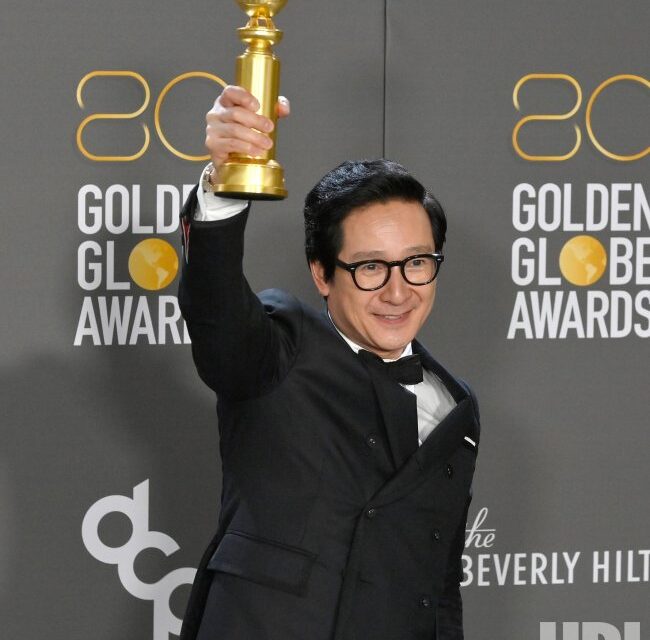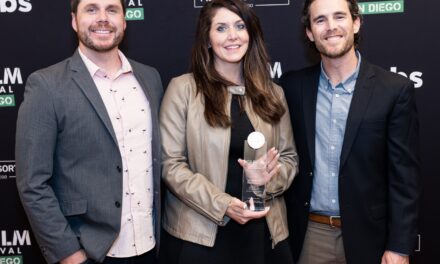
By Danny R. Johnson – Entertainment News Editor
Los Angeles, CA–If you live outside Los Angeles, with its bounty of For Your Consideration billboards, I have a question: Did you know the Golden Globes were televised Monday night?
If you did not, there’s a good reason: NBC pulled the show off the air last year after a Los Angeles Times exposé revealed that the Hollywood Foreign Press Association, the absurdly small voting body behind the awards, lacked diversity in its membership and engaged in questionable ethical and financial practices. This year, the network committed to a one-off trial of airing the Globes again, but many industry insiders and pundits questioned whether the show could bounce back from its litany of scandals. IndieWire put it most dramatically in its headline: “Will the Golden Globes Survive?” Of course, they did. Last night, the show went on: Celebrities packed into a ballroom. Trophies were handed out, and several standing ovations took place. But if the ceremony felt like a success, that was not because the HFPA made friendly with publicists whose talent had shunned the organization. The show was engaging not only because many of the winners spoke candidly before their peers about their careers but also because they happened to be the kind of entertainers who rarely get the chance to do so at all.
Watch how the actor Ke Huy Quan, who won for his supporting work in “Everything Everywhere All at Once,” seemed to vibrate as he stepped onto the stage. He explained how he had once thought his time as a child actor—he played Short Round in “Indiana Jones and the Temple of Doom”—would define his career. “As I grew older, I started to wonder if that was it if that was just luck,” he said. “For so many years, I was afraid I had nothing more to offer—that no matter what I did, I would never surpass what I did as a kid.”

Shortly afterward, his co-star, the actor Michelle Yeoh, echoed those sentiments of fear and resignation in her acceptance speech. “I remember when I first came to Hollywood—it was a dream come true until I got here,” she said. “Because look at this face. I came here and was told, ‘You are a minority.'” Hours later, The White Lotus’s Jennifer Coolidge spoke, too, about her doubts, even as she joked about finally being invited to parties. “I just want you all to know I had such big dreams and expectations as a younger person,” she said. “They get fizzled.”
These did not feel like typical awards-show speeches, all gratitude for agents and inspirational sound bites for those watching at home. These felt like confessions—and they did not come from just actors. After winning Best Director, Steven Spielberg told the room about how making “The Fabelmans” allowed him to observe how “nobody knows who we are honestly” and “the fact that everybody sees me as a success story.” Ryan Murphy, who received an honorary Golden Globe, used his time onstage to champion some of the biggest stars of his shows and movies, including Billy Porter and Michaela Jaé Rodriguez. He reminded the audience that these performers spent much of their careers being denied a chance to work because of their gender or sexual orientation.
The show’s format could not have inspired such self-reflection. As much concern as there had been about whether the Globes could get any stars to attend, the ceremony itself made only perfunctory moves in the end. In the show’s final half hour, there was a statement that the HFPA was undergoing “momentous change,” gesturing at the internal reforms the group has made, including adding Black journalists, banning gifts to its members, and creating a hotline for reporting misconduct. The host, the comedian Jerrod Carmichael, lightly ribbed the HFPA for not including a Black member among its ranks before the exposé. Carmichael was, as he is in his superb particular, very thoughtful. He explained how he’d untangled the moral questions over whether to be “the Black face of an embattled white organization,” but he glossed over the organization’s ongoing problems. “Regardless of the [HFPA’s] past, this is an evening that we get to celebrate, and I think this industry deserves evenings like these,” Carmichael said. “I’m happy you all are here.”

The question of whether the Globes would return to their previous glory was wrong. The real dilemma is whether awards shows should exist amid dwindling ratings and interest. What are they, other than a chance for an insular world to praise itself? Conventional wisdom in Hollywood argues that these ceremonies offer excellent publicity boosts: They allow overlooked films and television shows to get some attention from the public finally. Studios would time their movies to go into wide release after the Globes; that’s what happened with 1917 in 2020.
But last night inadvertently clarified that such functions can be invaluable platforms for genuine storytelling. Sure, those precious seconds onstage before the play-off music kicks in are meant to be used to thank every colleague, but the most memorable winners offered speeches that were not just about their project. They spoke about uncertainty, regret, and apprehension that can overwhelm anyone trying to fulfill a dream. Hollywood can seem like a glamorous, inaccessible business—particularly during black-tie fetes populated by A-listers—but the industry does not feel so remote in these stories of worry and angst.




